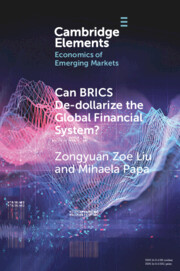The Institute of International Finance (IIF) is a key actor in global finance, mixing private-interest representation and market governance roles. Analyzing the historical development of the IIF offers important insights into the interaction between state and business and the resulting patterns of public and private governance. Based on archive sources and a unique set of interviews with elite policymakers spanning three decades, I argue that market structures, interest groups, and public policymaking processes stand in a recursive relationship. Secondly, I argue that interest groups take on private governance roles with the aim to remain the focal point of public policymakers vis-à-vis competing interest groups. This has important implications for the study of interest groups and global financial governance. The analysis of interest groups should be extended to the way they shape markets through private governance mechanisms and how that recursively feeds back into interest group advocacy and public policymaking processes to fully grasp lobbying dynamics. The study of global governance should include analysis of interest group competition within the opportunities and constraints emanating from public policymaking processes so as to understand the emergence of private patterns of governance and their interaction with public governance mechanisms.


